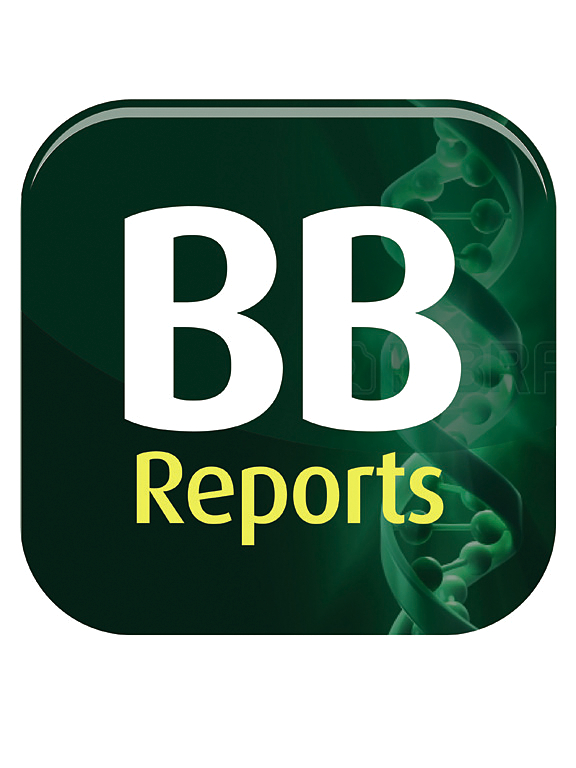Short communication: The effect of Propolis extract treatment on the Lee index and brain-body weight ratio in diet-induced obesity rats
IF 2.3
Q3 BIOCHEMISTRY & MOLECULAR BIOLOGY
引用次数: 0
Abstract
Obesity is a severe public health concern that can impair brain structure and function. The potential anti-inflammatory and anti-obesogenic properties of propolis extract are beneficial in preventing brain damage after diet-induced obesity. The purpose of the study is to investigate the role of propolis extract in high-fat diet-induced obesity rats using the Lee index and brain-body weight ratio (BBWR). We divided the rats into the experimental groups as follows: CD (normal chow diet), CP (normal chow diet with propolis treatment), FD (high-fat diet), and FP (high-fat diet with propolis treatment). We administered propolis extract in CP and FP for nine weeks during 21 weeks of diet. The rat's body weight and length were measured for obesity evaluation. The brain of all experimental rats was harvested and weighed at the end of the study. We found that a chronic high-fat diet significantly increased body weight and the Lee index (p < 0.01). However, a high-fat diet significantly decreased brain weight and BBWR in rats (p < 0.05). Nine weeks of propolis extract supplementation in the FP group reduced the Lee index (p < 0.01) and slightly increased brain weight and BBWR compared to the FD group. We observed a negative correlation between brain weight and the Lee index (R = – 0.64). Therefore, we conclude that propolis extract has the potential to sustain brain health in obesity.

短通讯:蜂胶提取物对饮食性肥胖大鼠Lee指数及脑体重比的影响
肥胖是一个严重的公共健康问题,它会损害大脑结构和功能。蜂胶提取物潜在的抗炎和抗肥胖特性有助于预防饮食性肥胖后的脑损伤。本研究旨在通过Lee指数和脑体重比(BBWR)研究蜂胶提取物对高脂饮食性肥胖大鼠的作用。我们将大鼠分为4个实验组:CD(正常饲料)、CP(正常饲料加蜂胶)、FD(高脂肪饲料)和FP(高脂肪饲料加蜂胶)。在21周的饲粮中,连续9周在CP和FP中添加蜂胶提取物。测量大鼠体重和体长以评估肥胖程度。在研究结束时,所有实验大鼠的大脑都被采集并称重。我们发现,长期高脂肪饮食显著增加体重和Lee指数(p <;0.01)。然而,高脂肪饮食显著降低了大鼠的脑重量和BBWR (p <;0.05)。FP组添加蜂胶提取物9周后降低了Lee指数(p <;与FD组相比,脑重和BBWR略有增加。我们观察到脑重量与Lee指数呈负相关(R = - 0.64)。因此,我们得出结论,蜂胶提取物有可能维持肥胖患者的大脑健康。
本文章由计算机程序翻译,如有差异,请以英文原文为准。
求助全文
约1分钟内获得全文
求助全文
来源期刊

Biochemistry and Biophysics Reports
Biochemistry, Genetics and Molecular Biology-Biophysics
CiteScore
4.60
自引率
0.00%
发文量
191
审稿时长
59 days
期刊介绍:
Open access, online only, peer-reviewed international journal in the Life Sciences, established in 2014 Biochemistry and Biophysics Reports (BB Reports) publishes original research in all aspects of Biochemistry, Biophysics and related areas like Molecular and Cell Biology. BB Reports welcomes solid though more preliminary, descriptive and small scale results if they have the potential to stimulate and/or contribute to future research, leading to new insights or hypothesis. Primary criteria for acceptance is that the work is original, scientifically and technically sound and provides valuable knowledge to life sciences research. We strongly believe all results deserve to be published and documented for the advancement of science. BB Reports specifically appreciates receiving reports on: Negative results, Replication studies, Reanalysis of previous datasets.
 求助内容:
求助内容: 应助结果提醒方式:
应助结果提醒方式:


